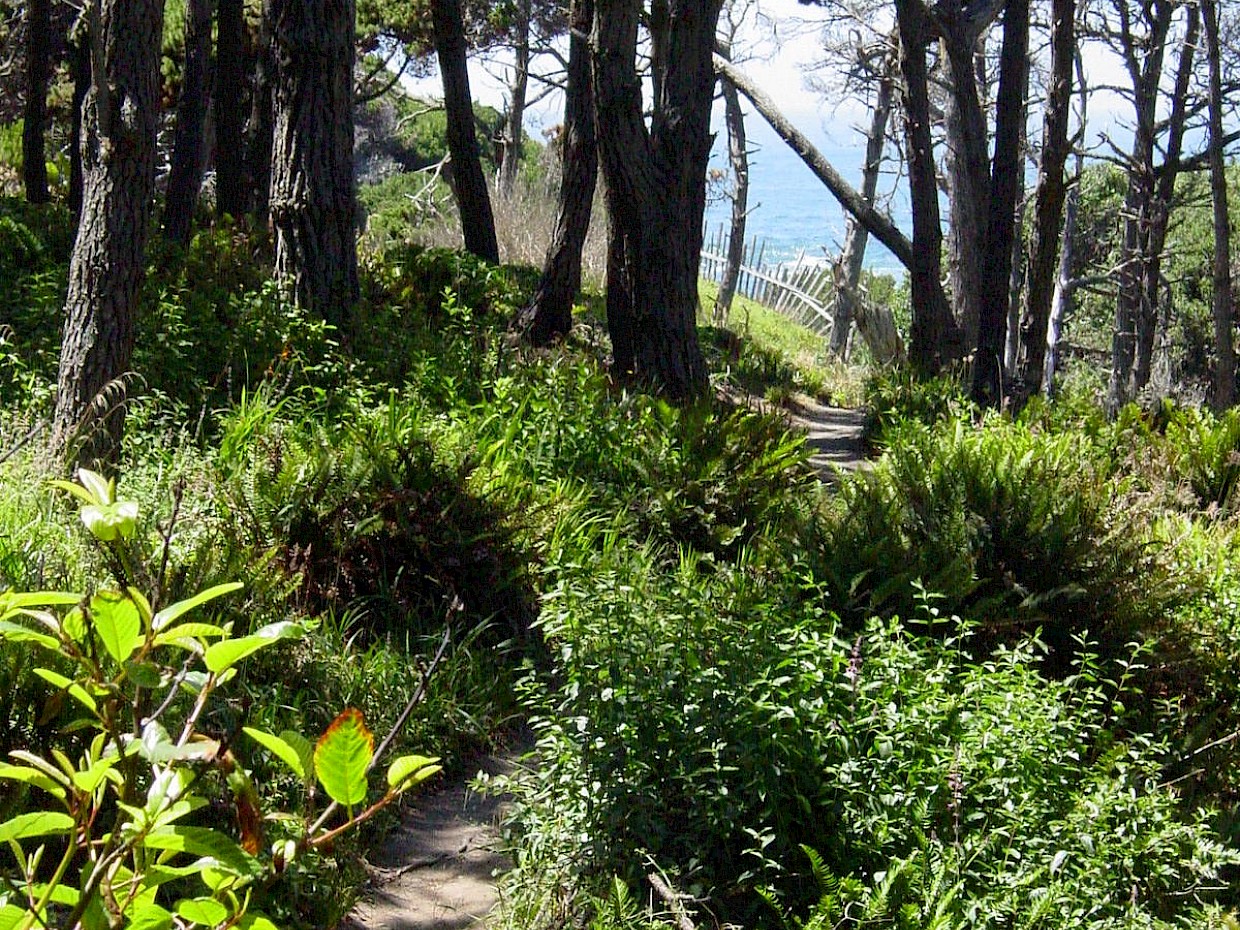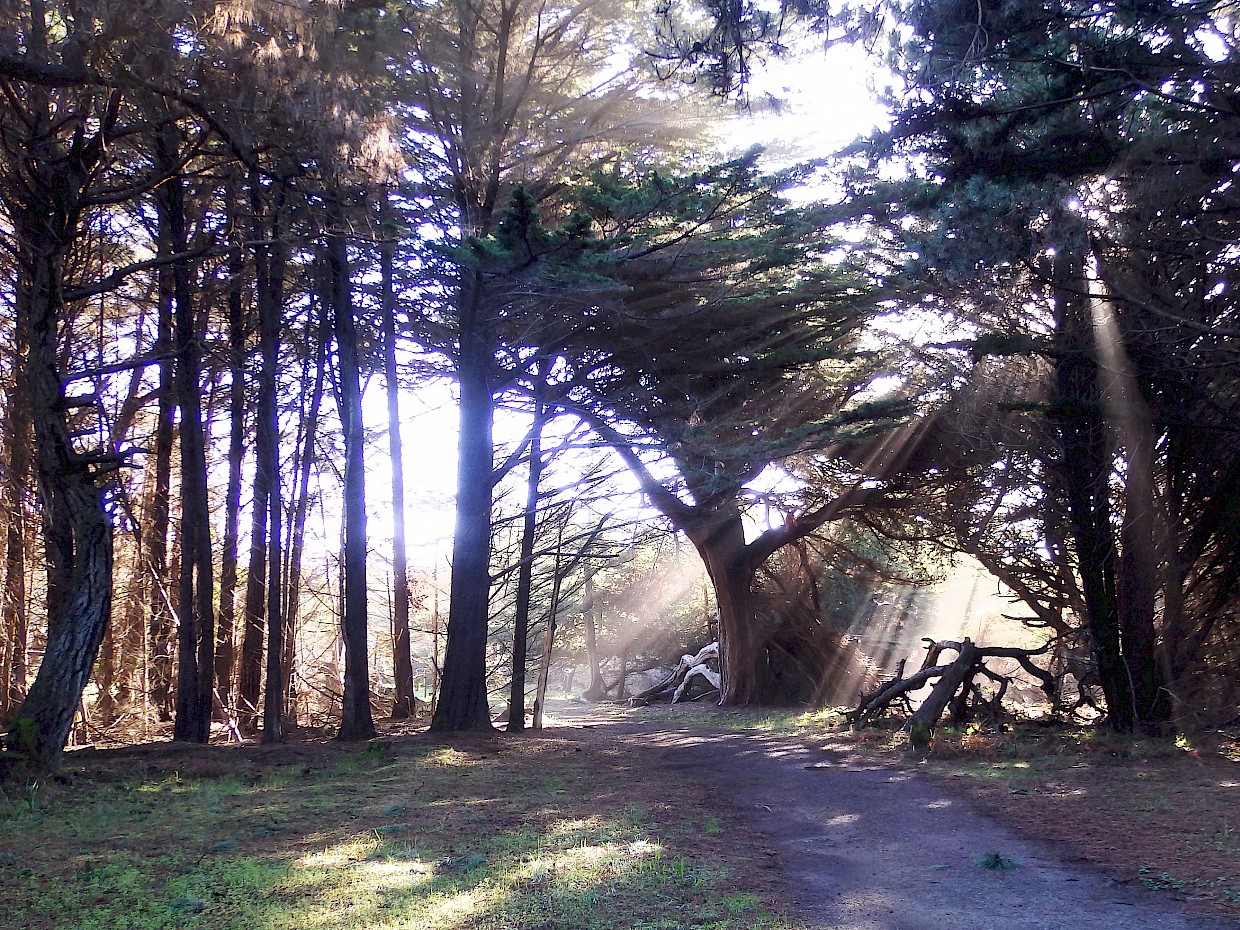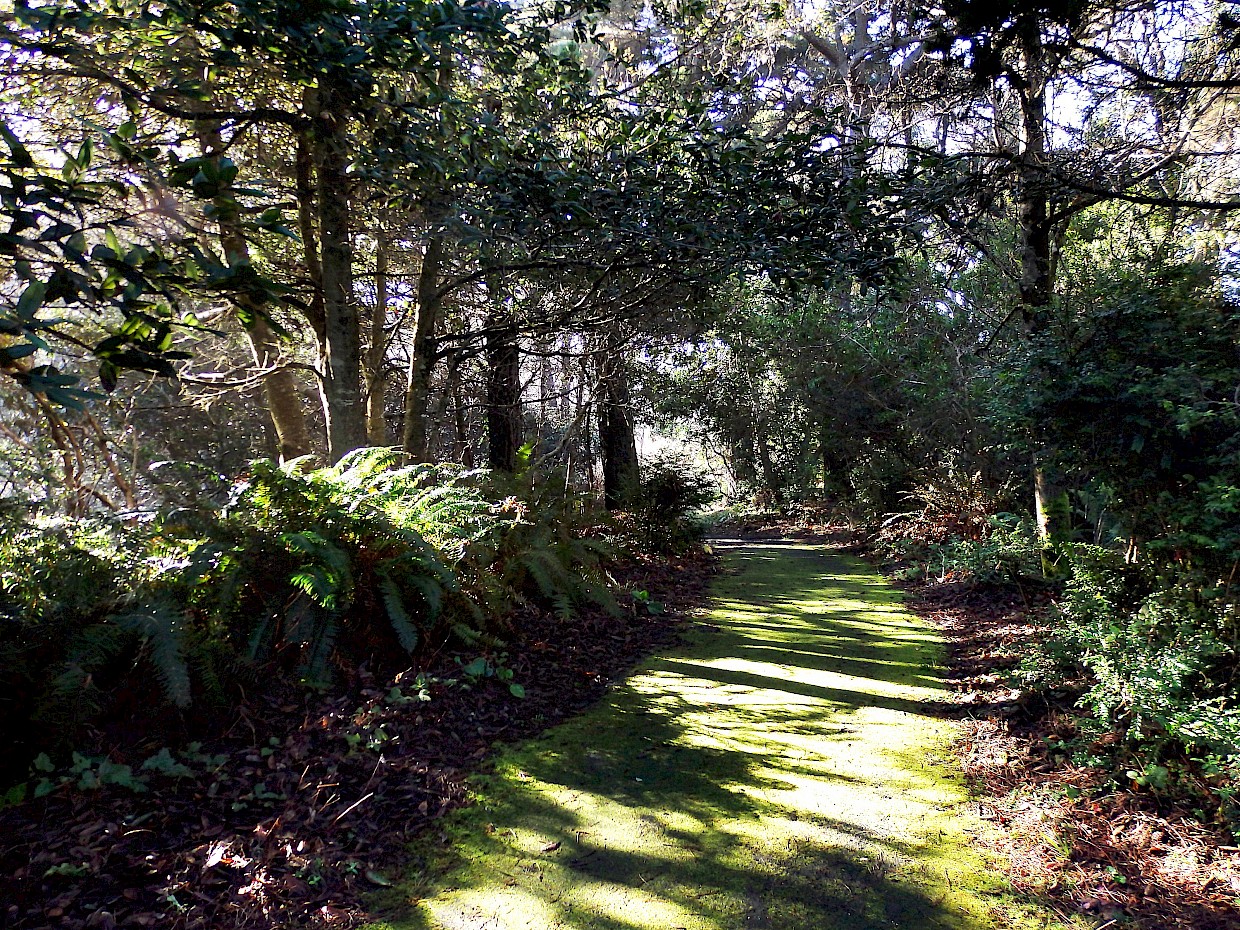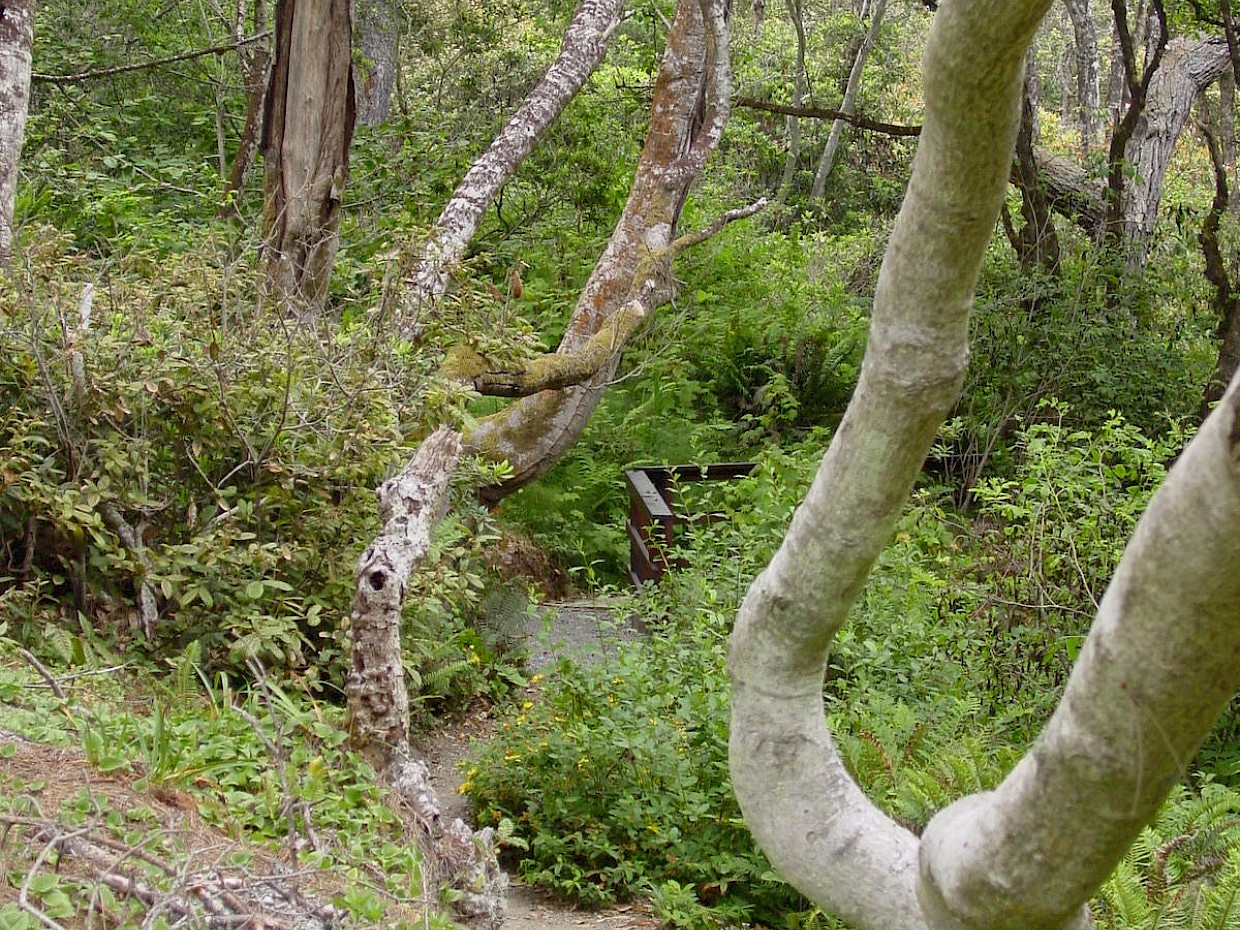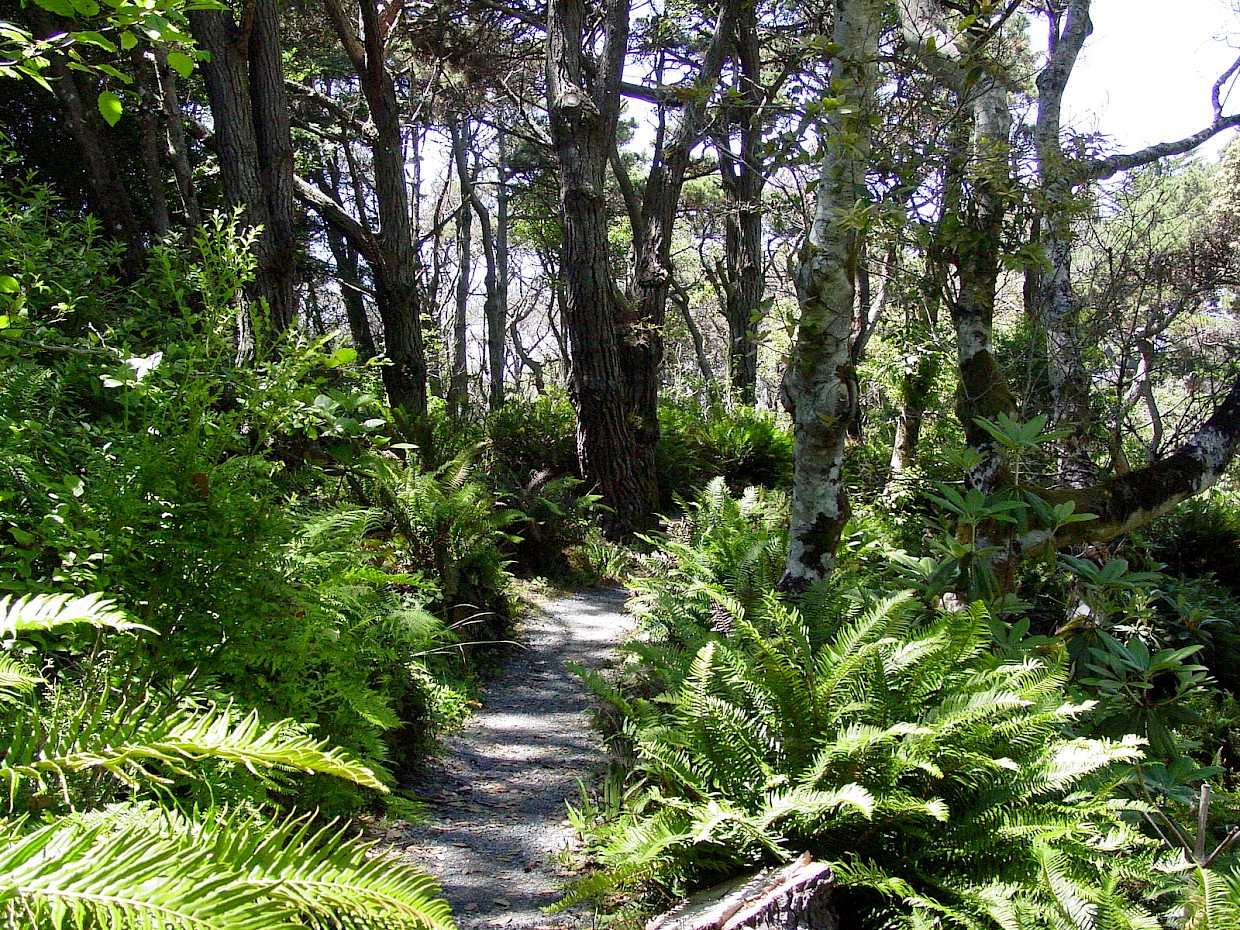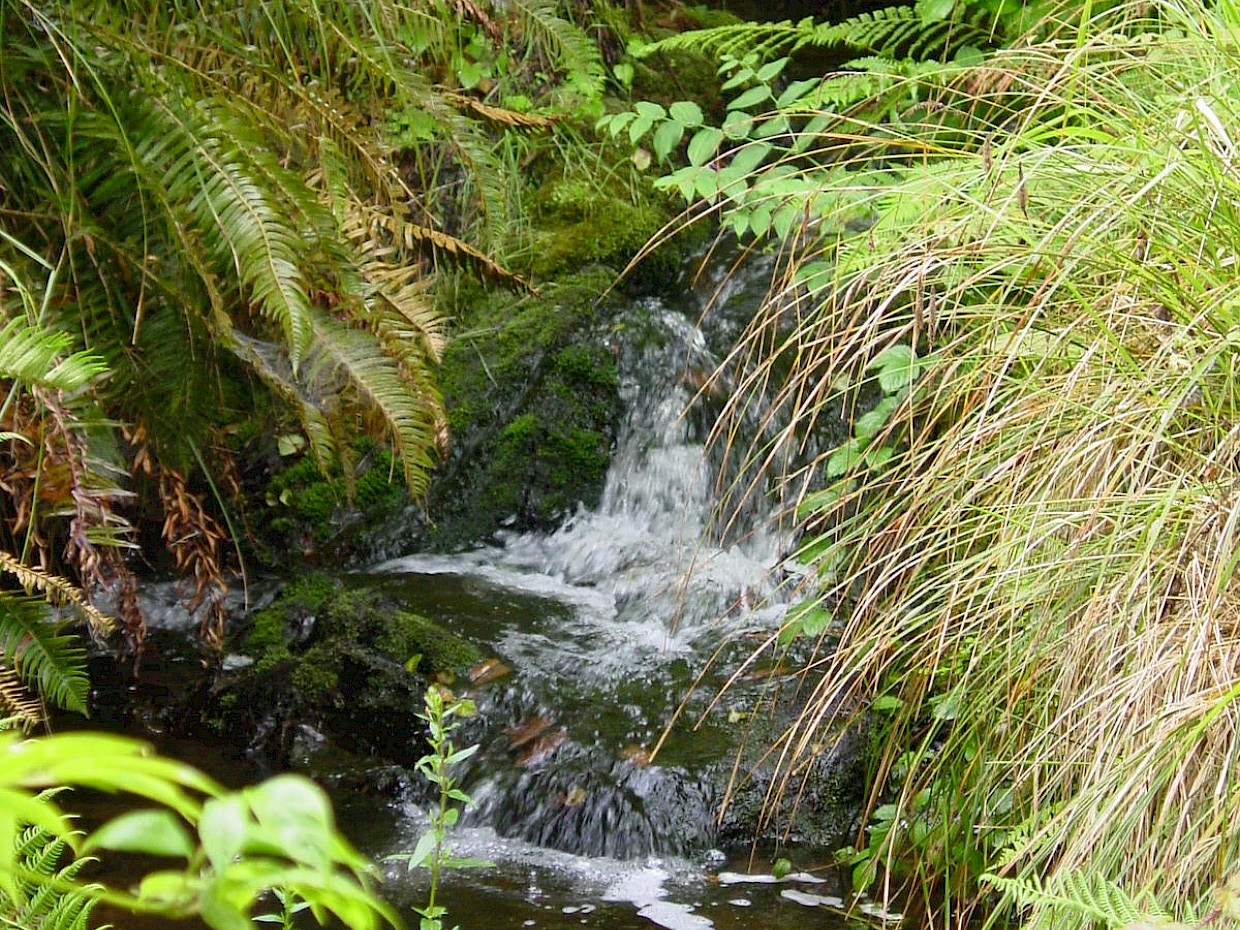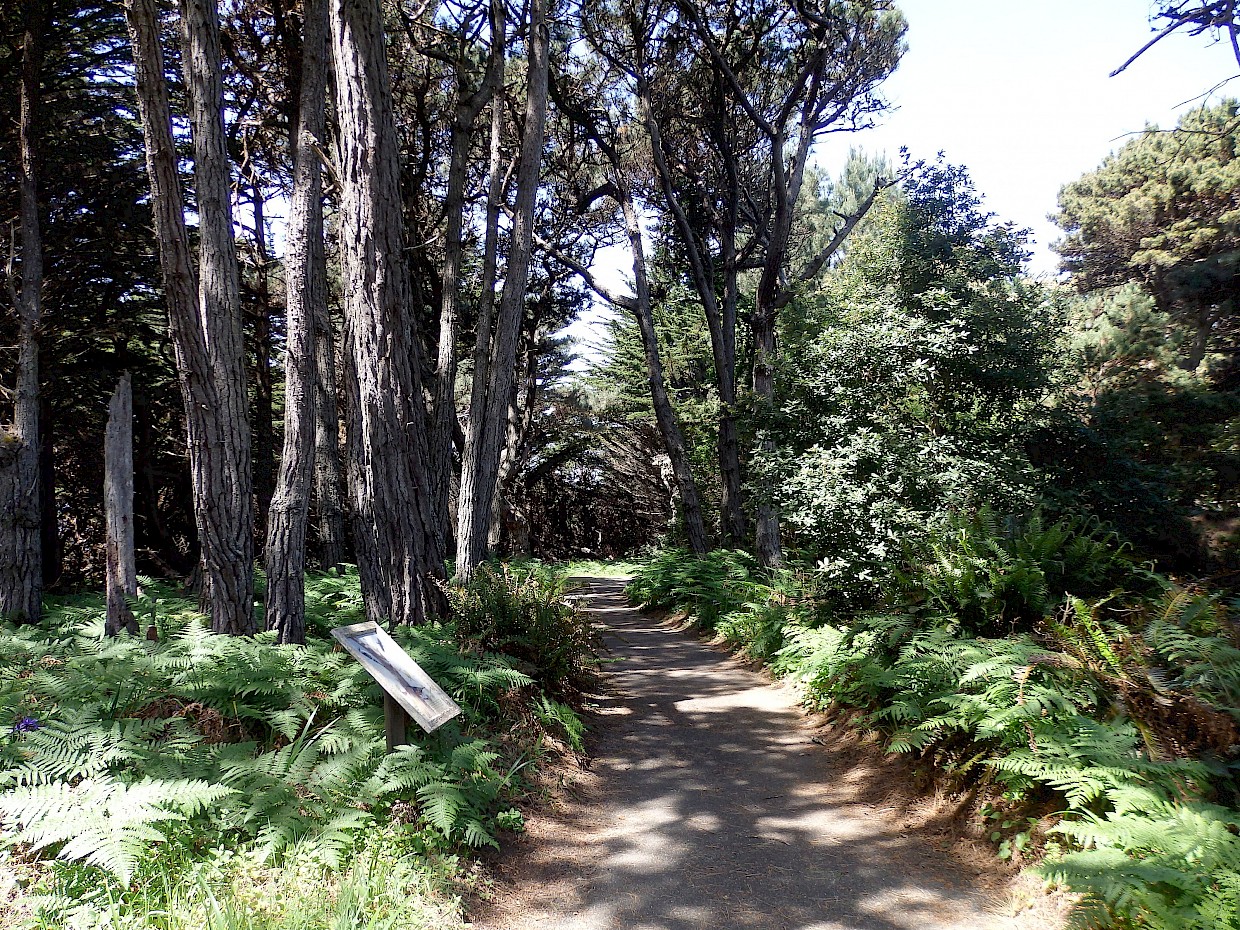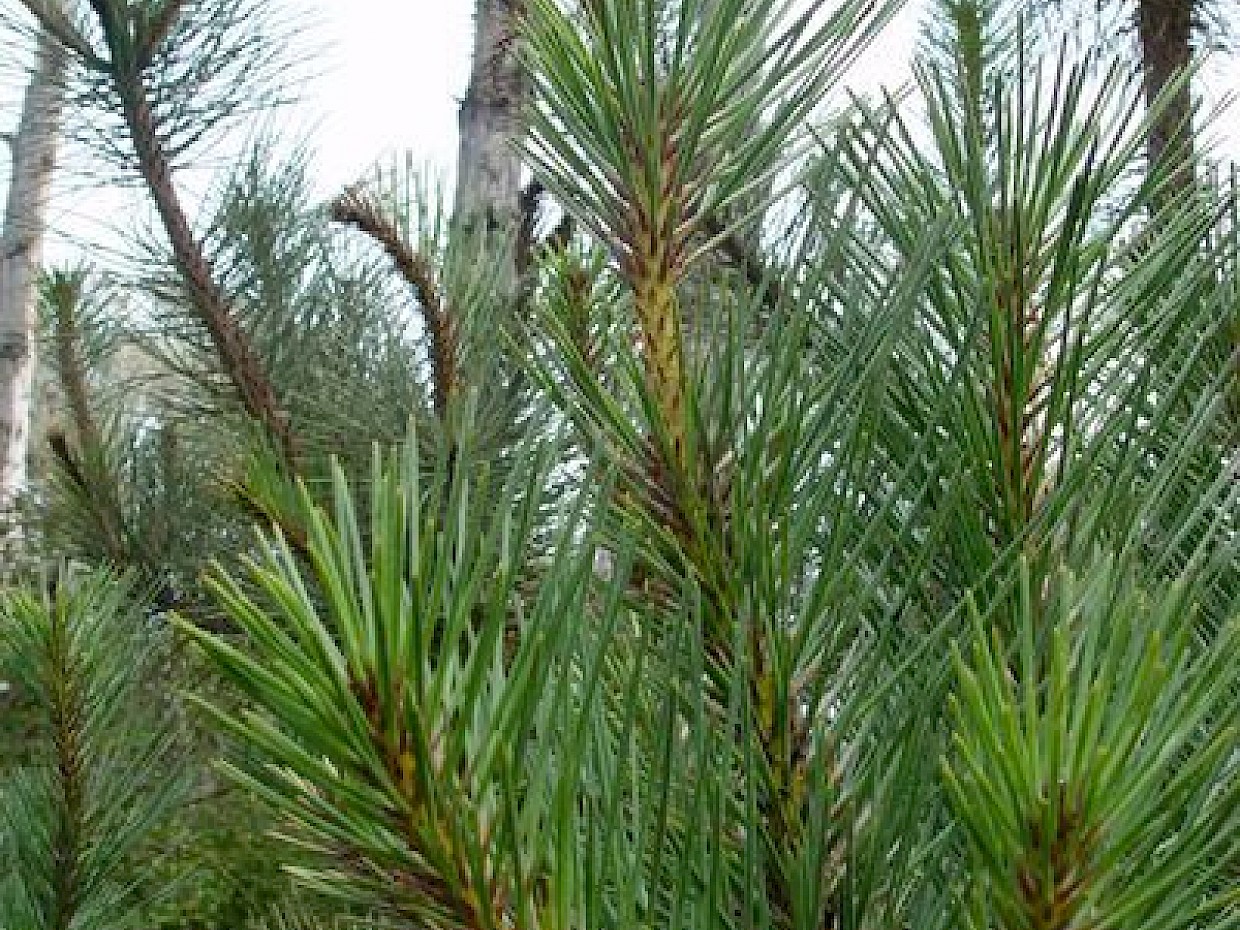Closed-cone Pine Forest
Important Native Habitat
A closed-cone pine forest forms the background for our beautiful Gardens and provides an invaluable windbreak, without which the Gardens could not exist. The Bishop pines in the Gardens are reaching maturity (about 80 years); many reach 100 feet nearer the cultivated sections of the garden, while those closer to shore are shorter as they face the elements from offshore. Because of fire suppression, lush undergrowth, and lack of sunlight, our closed-cone pine forest is unable to naturally regenerate itself. The Gardens has a forest regeneration program under way to ensure this native habitat will continue to exist and thrive. Seed collection and nursery growth of new conifers are important components of this plan.
The characteristic tree species of our closed-cone pine forest plant community are Bishop pine (Pinus muricata), shore pine (Pinus contorta ssp. contorta), and Monterey cypress (Cupressus macrocarpa), which was introduced out toward the headlands as a windbreak. Common understory plants here include twinberry (Lonicera involucrata var. ledebourii), salal (Gaultheria shallon), sword fern (Polystichum munitum), false lily of the valley (Maianthemum dilatatum), and evergreen huckleberry (Vaccinium ovatum).
Meander on paths through this forest along Fern Canyon Creek. These habitats are of great importance as they are home to many bird and wildlife species, while the creek itself is an important part of local salmon restoration efforts.
Next: Coastal Bluff and Marine Zone »
« Previous: Rhododendron Collection

